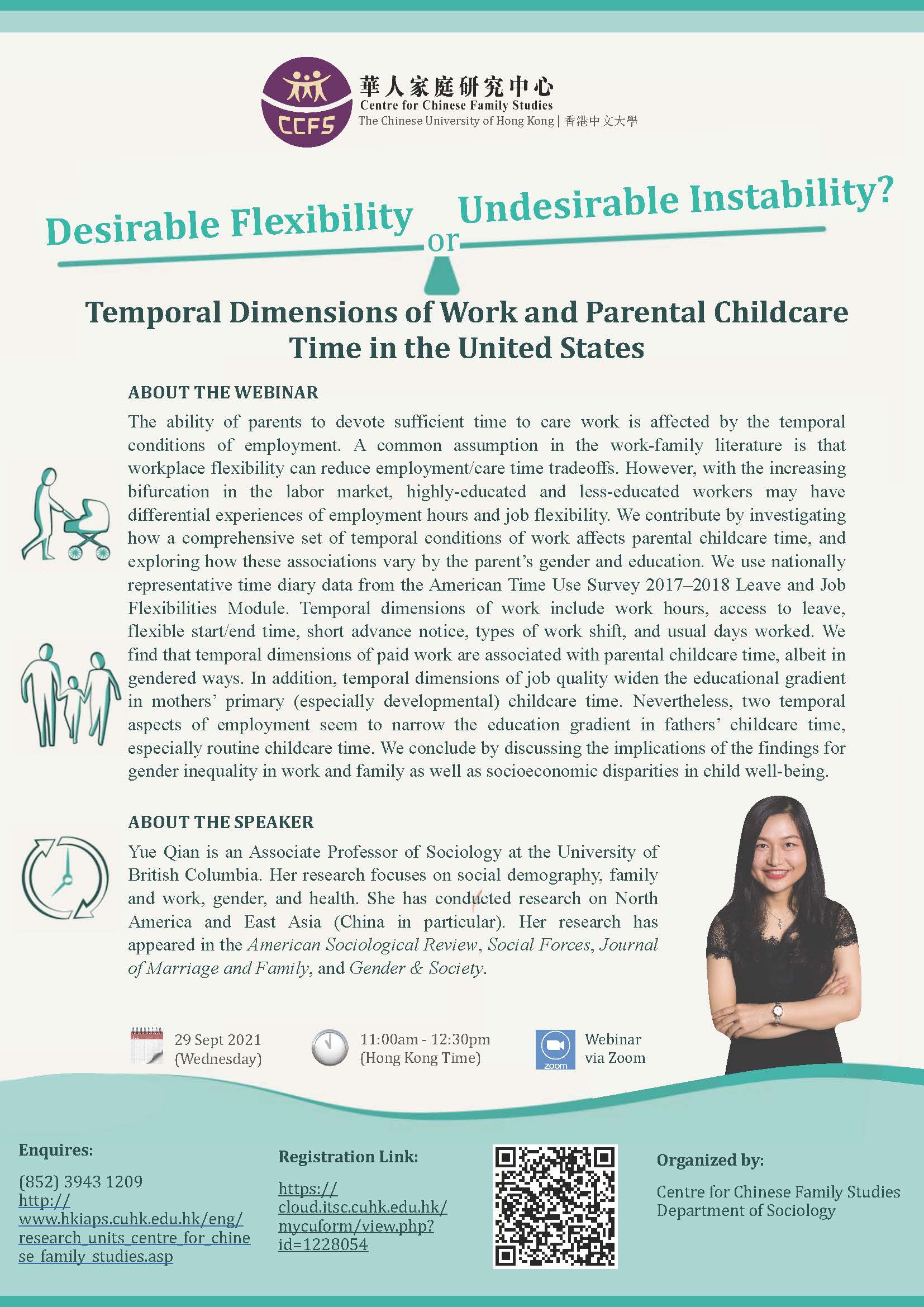
sociology@cuhk.edu.hk
ABOUT THE WEBINAR
The ability of parents to devote sufficient time to care work is affected by the temporal conditions of employment. A common assumption in the work-family literature is that workplace flexibility can reduce employment/care time tradeoffs. However, with the increasing bifurcation in the labor market, highly-educated and less-educated workers may have differential experiences of employment hours and job flexibility. We contribute by investigating how a comprehensive set of temporal conditions of work affects parental childcare time, and exploring how these associations vary by the parent’s gender and education. We use nationally representative time diary data from the American Time Use Survey 2017–2018 Leave and Job Flexibilities Module. Temporal dimensions of work include work hours, access to leave, flexible start/end time, short advance notice, types of work shift, and usual days worked. We find that temporal dimensions of paid work are associated with parental childcare time, albeit in gendered ways. In addition, temporal dimensions of job quality widen the educational gradient in mothers’ primary (especially developmental) childcare time. Nevertheless, two temporal aspects of employment seem to narrow the education gradient in fathers’ childcare time, especially routine childcare time. We conclude by discussing the implications of the findings for gender inequality in work and family as well as socioeconomic disparities in child well-being.
ABOUT THE SPEAKER
Yue Qian is an Associate Professor of Sociology at the University of British Columbia. Her research focuses on social demography, family and work, gender, and health. She has conducted research on North America and East Asia (China in particular). Her research has appeared in the American Sociological Review, Social Forces, Journal of Marriage and Family, and Gender & Society.

